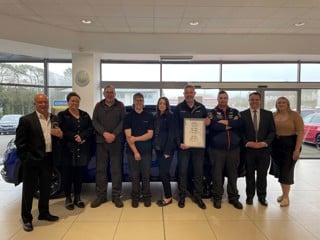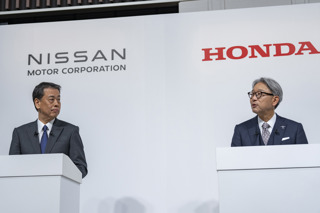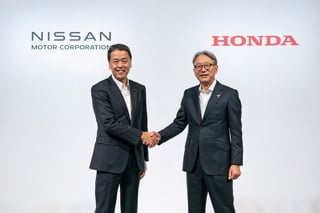But have the positive words resulted in positive change? Honda believes so, which is why AM was invited to a meeting with UK general manager – cars Ewan Ramsay and chairman of the National Dealer Council (NDC) Gary Peters.
Peters, who is also dealer principal at Ruislip Honda, has changed the structure of the NDC in a bid to increase its influence with Honda. Each member is given topics to focus on outside meetings to enable the NDC to get resolutions when it meets.
“We also try to get involved in discussions at an earlier stage to have an input so that our comments are more constructive,” says Peters.
The biggest topics over the past few months have been sales targets and margins structure. “We wanted to get away from the annual churn of the margin set-up, to have something that could last for years,” says Peters.
#AM_ART_SPLIT# The result is a national agreement where half the bonus is based on sales volume, 25% on customer retention and 25% on individual business planning. CSI, as previously reported in AM, have been removed from the bonus scheme at the request of the NDC who believes it is something all retailers should be doing.
Ramsay says: “I’ve not heard one complaint about the way the process has been developed.” Previous performance is not a factor; it’s all about potential. “It’s unfair to just push dealers to do more and more,” says Peters.
The NDC is keen to move from end of year objectives to a rol ling four-month review. It also wants the target calculation method and business terms agreement to stay firm for longer.
“We want individual measurements for each dealer, not the one size fits all approach” says Peters. “We want constructive bonuses to help dealers improve business.”
Ramsay claims this will happen. “Every dealer will have an individual plan that will help Honda achieve its objectives. For example, Honda’s focus on alternative premium with improved premises. If a dealer already meets it then they should be rewarded automatically.
“Funding should be based on elements of their individual business plan – the question is what percentage of their bonus is based on it.”
Discussions on business terms and how the bonus pot is split have started. Ramsay hopes to conclude them by the end of October.
But he adds: “Dealer profits have already increased substantially and costs have declined on a relative basis, though not in totality.”
Honda is also looking at other key topics, including retail and corporate objectives, encouraging dealers to enter the corporate market and managing supply across the network.
“We are starting to debate drivers that affect profitability. We have to have open engagement so dealers feel comfortable in speaking out,” Ramsay says.
“We have to be pragmatic. The more cars a manufacturer sells, the more money it makes. But that is not necessarily the most profitable model for the dealer.”
Peters adds: “It’s about how volume is achieved. If it’s consumer demand, then great; if it isn’t that’s where you get the rub.”
Topics that will be added to the agenda at NDC meetings this year include cashflow. Ramsay says Honda is keen to reduce dealer costs without increasing its own burden.
“There are things we do that have a knock-on impact, such as the timing of the invoice process which affects cashflow,” he says. “Profitable businesses can collapse because of cashflow.”
Peters stresses the need for each party to operate in their own silo. “We need to concentrate on the areas where we have the expertise, and manufacturers need to do the same ,” he says.
“If both sides meddle in each others domain they lose focus on their own area.”
#AM_ART_SPLIT# Honda looks outside dealer network for fresh ideas
Honda is using its influence to bring new practices into the network. In addition to working closely with its other divisions, such as motorcycles, the company is also looking at benchmarking outside automotive retail and is talking to high street retailers who excel in customer service. These retailers include Starbucks and John Lewis.
“It might lead to talks from other retailers to the network or comparing training programmes, for instance John Lewis incorporates more role play and less technical stuff,” says Ewan Ramsay, chairman of the National Dealer Council.
“We need to understand which bits we can take from them and apply to our business and our network.”

















Login to comment
Comments
No comments have been made yet.